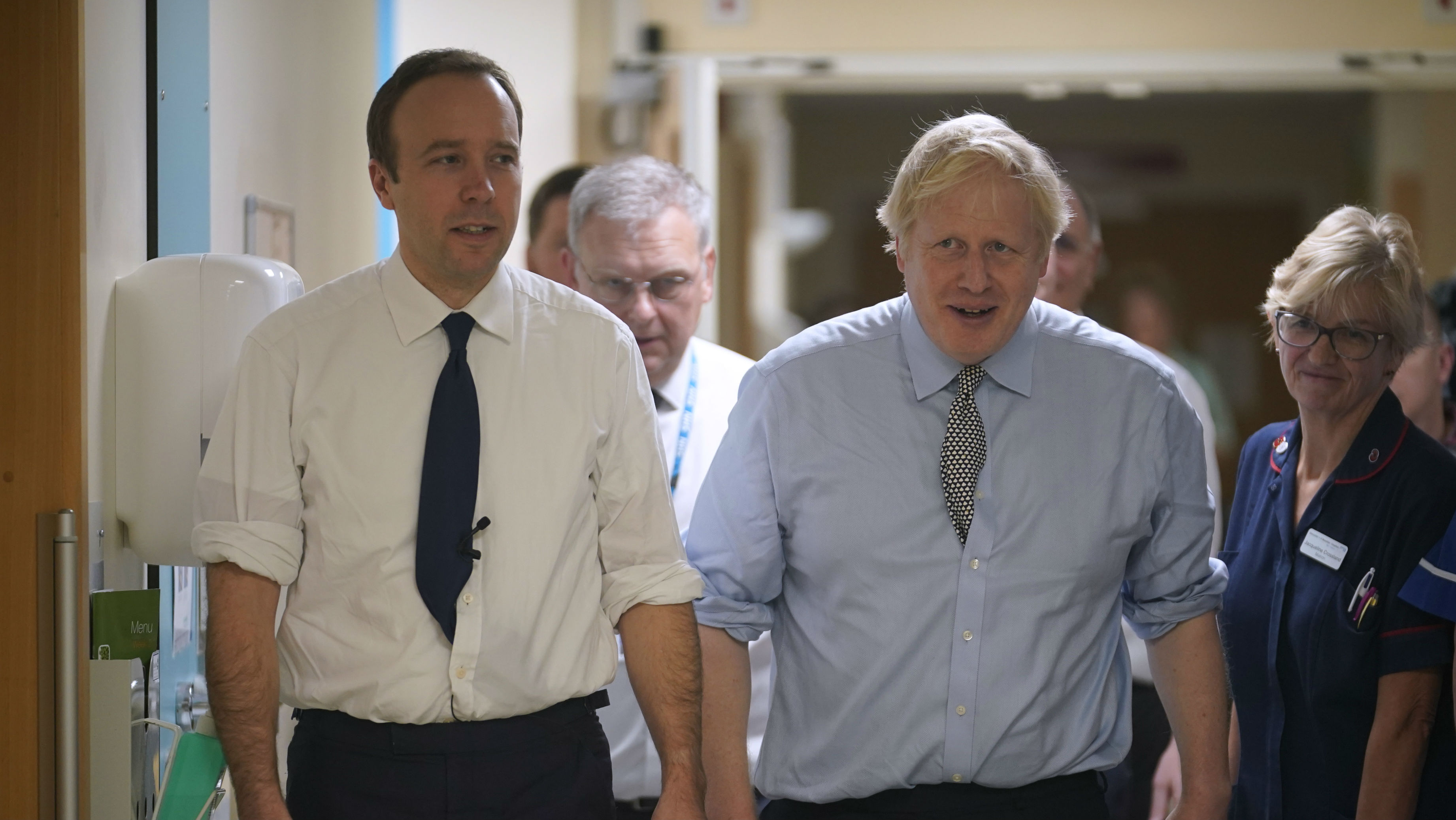Coronavirus: ventilator shortage ‘due to decade of NHS underfunding’
Health Secretary suggests UK manufacturers switch to making respirators to combat shortfall

A free daily email with the biggest news stories of the day – and the best features from TheWeek.com
You are now subscribed
Your newsletter sign-up was successful
An emergency manufacture of respirators will be necessary to treat those who become acutely ill with coronavirus, the government has admitted.
Health Secretary Matt Hancock said yesterday that the NHS currently has an estimated 5,000 ventilators, but added that it will need “many times more than that” to deal with the influx of patients expected to suffer from the coronavirus.
He refused to promise that everyone who needs a ventilator will have access to one, instead saying: “We don't make guarantees in healthcare.”
The Week
Escape your echo chamber. Get the facts behind the news, plus analysis from multiple perspectives.

Sign up for The Week's Free Newsletters
From our morning news briefing to a weekly Good News Newsletter, get the best of The Week delivered directly to your inbox.
From our morning news briefing to a weekly Good News Newsletter, get the best of The Week delivered directly to your inbox.
The chairperson of the British Medical Association, Chaand Nagpaul, blamed the UK’s lack of ventilators when compared to other countries on “a decade of under-funding”.
Speaking to The Sunday Times, Nagpaul said: “And now what... we need to do, is make some really decisive decisions on how that limited resource is used in the best possible way for those who are going to need it.
“That may require, and it should require actually, some major decisions on ceasing non-urgent routine care, a mass move towards many more consultations occurring remotely.”
–––––––––––––––––––––––––––––––For a round-up of the most important stories from around the world - and a concise, refreshing and balanced take on the week’s news agenda - try The Week magazine. Get your first six issues for £6–––––––––––––––––––––––––––––––
A free daily email with the biggest news stories of the day – and the best features from TheWeek.com
Meanwhile, people over the age of 70 are set to be told by Boris Johnson’s government to stay in strict isolation at home or in care homes for four months, in a move expected to be enforced “within the coming weeks”.
According to ITV News, the move is a part of a series of measures being prepared to prevent the health service from “falling over” in the coming weeks and months.
Others steps include the forced requisitioning of hotels and other buildings as temporary hospitals, the takeover of private hospitals and the temporary closure of pubs, bars and restaurants.
“The measures that we’re looking at taking are very, very significant and they will disrupt the ordinary lives of almost everybody in the country in order to tackle this virus,” said Hancock.
Speaking to Sky News, he added that asking older people and the vulnerable to self-isolate for a long period of time would “clearly not an easy thing for people to do”, noting that it is “not an easy thing for people to sustain”.
Revealing the plan to ask over 70s to self-isolate, ITV political editor Robert Peston wrote that “what keeps ministers and officials awake at night” is the fear that the epidemic could overwhelm the NHS. This, Peston added, could lead to ministers having to make “appalling decisions, such as that the NHS would stop treating people over a certain age, such as 65”.
-
 Bad Bunny’s Super Bowl: A win for unity
Bad Bunny’s Super Bowl: A win for unityFeature The global superstar's halftime show was a celebration for everyone to enjoy
-
 Book reviews: ‘Bonfire of the Murdochs’ and ‘The Typewriter and the Guillotine’
Book reviews: ‘Bonfire of the Murdochs’ and ‘The Typewriter and the Guillotine’Feature New insights into the Murdoch family’s turmoil and a renowned journalist’s time in pre-World War II Paris
-
 Witkoff and Kushner tackle Ukraine, Iran in Geneva
Witkoff and Kushner tackle Ukraine, Iran in GenevaSpeed Read Steve Witkoff and Jared Kushner held negotiations aimed at securing a nuclear deal with Iran and an end to Russia’s war in Ukraine
-
 A Nipah virus outbreak in India has brought back Covid-era surveillance
A Nipah virus outbreak in India has brought back Covid-era surveillanceUnder the radar The disease can spread through animals and humans
-
 A real head scratcher: how scabies returned to the UK
A real head scratcher: how scabies returned to the UKThe Explainer The ‘Victorian-era’ condition is on the rise in the UK, and experts aren’t sure why
-
 How dangerous is the ‘K’ strain super-flu?
How dangerous is the ‘K’ strain super-flu?The Explainer Surge in cases of new variant H3N2 flu in UK and around the world
-
 Covid-19 mRNA vaccines could help fight cancer
Covid-19 mRNA vaccines could help fight cancerUnder the radar They boost the immune system
-
 The ‘menopause gold rush’
The ‘menopause gold rush’Under the Radar Women vulnerable to misinformation and marketing of ‘unregulated’ products
-
 The new Stratus Covid strain – and why it’s on the rise
The new Stratus Covid strain – and why it’s on the riseThe Explainer ‘No evidence’ new variant is more dangerous or that vaccines won’t work against it, say UK health experts
-
 RFK Jr. vaccine panel advises restricting MMRV shot
RFK Jr. vaccine panel advises restricting MMRV shotSpeed Read The committee voted to restrict access to a childhood vaccine against chickenpox
-
 RFK Jr. scraps Covid shots for pregnant women, kids
RFK Jr. scraps Covid shots for pregnant women, kidsSpeed Read The Health Secretary announced a policy change without informing CDC officials